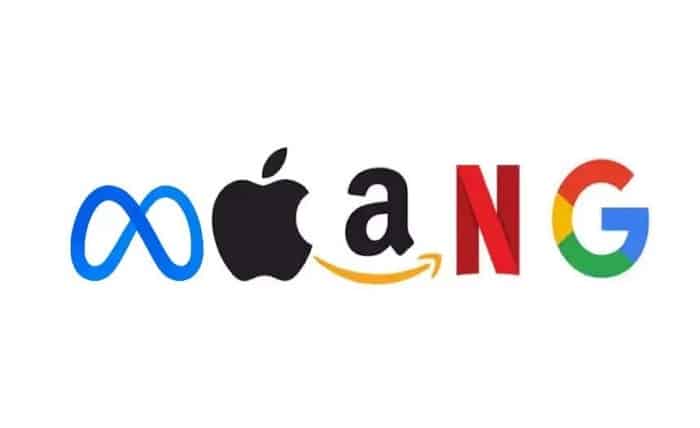Maang Companies Revolutionizing the Business Landscape

In the digital age, businesses are constantly evolving to adapt to new trends and technologies. One such trend that has gained significant attention in recent years is the rise of maang companies. In this article, we will explore the concept of maang companies, their benefits, challenges they face, their impact on various industries, strategies for success, and the future prospects of this revolutionary business model.
Maang Companies
Maang companies are innovative businesses that leverage technology, connectivity, and the power of the internet to provide on-demand services to customers. The term “maang” is derived from the Hindi word meaning “demand,” highlighting the central focus of these companies.
These companies operate through online platforms or mobile applications, connecting customers directly with service providers in various industries such as transportation, food delivery, home services, healthcare, and more. By eliminating intermediaries and streamlining processes, maang companies offer convenience, efficiency, and personalized experiences to their users.
The Benefits of Maang Companies
Maang companies have revolutionized the way we access services by offering numerous benefits:
Convenience and Accessibility
Maang companies provide users with instant access to services with just a few taps on their smartphones. Whether it’s booking a ride, ordering food, or scheduling a home repair, customers can enjoy the convenience of getting what they need, when they need it, at their fingertips.
Increased Efficiency and Time Savings
By leveraging technology and optimized processes, maang companies minimize the time and effort required for service delivery. This leads to enhanced productivity and time savings for both service providers and customers.
Greater Service Options and Customization
Maang companies offer a wide range of services from various providers, allowing customers to choose the one that best meets their needs. Moreover, these platforms often incorporate user preferences and feedback to personalize the service experience, creating a more tailored and satisfactory outcome.
Job Creation and Economic Growth
The rise of maang companies has contributed to the creation of new employment opportunities. These platforms enable individuals to become service providers, opening up avenues for entrepreneurship and economic growth.
The Challenges Faced by Maang Companies
While maang companies offer tremendous potential, they also face certain challenges:
Regulatory and Legal Issues
The disruptive nature of maang companies has led to regulatory challenges in many jurisdictions. Governments and regulatory bodies are grappling with issues such as labor rights, safety regulations, taxation, and fair competition.
Maintaining Quality and Trust
As maang companies rely on a network of service providers, maintaining consistent quality and trust becomes crucial. Ensuring that all providers meet certain standards and providing mechanisms for user feedback and dispute resolution are ongoing challenges.
Market Saturation and Competition
The rapid growth of maang companies has led to increased competition in the market. It becomes crucial for these companies to differentiate themselves through innovation, service quality, and customer experience to stay ahead of the competition.
How Maang Companies are Transforming Industries
Maang companies are reshaping various industries, including:
Read more about: 99-math
Transportation and Mobility
Companies like Uber and Lyft have transformed the way people travel by offering convenient, cost-effective ridesharing services. They have disrupted traditional taxi services and provided an alternative that is often more affordable and efficient.
Food Delivery and Hospitality
Maang companies in the food delivery industry, such as DoorDash and Grubhub, have made it easier than ever to enjoy restaurant-quality meals in the comfort of our homes. These platforms connect customers with a wide range of restaurants, providing an extensive selection and speedy delivery.
Home Services
From plumbing and electricians to house cleaning and pet sitting, maang companies like TaskRabbit and Handy have revolutionized the way we access home services. These platforms connect users with qualified professionals, making it convenient to find reliable help for various household needs.
Healthcare and Telemedicine
Maang companies have also made significant strides in the healthcare sector. Telemedicine platforms like Teladoc and Amwell enable patients to consult with doctors remotely, improving accessibility and reducing the need for in-person visits.
Strategies for Success in the Maang Company Era
To thrive in the maang company era, businesses must consider the following strategies:
Embrace Technology and Innovation
Companies should invest in digital transformation to streamline operations and improve customer experiences. Leveraging emerging technologies like artificial intelligence, data analytics, and automation can enhance efficiency and competitiveness.
Focus on Customer Experience
Delivering exceptional customer experiences is vital for success. Maang companies should prioritize convenience, personalization, and responsiveness to user needs, leveraging customer feedback to continuously improve their services.
Build Strong Partnerships
Collaborating with complementary businesses or service providers can expand the range of services offered and attract a broader customer base. Strategic partnerships can create synergies and drive mutual growth.
Adapt to Regulatory Changes
Maang companies must stay informed about evolving regulations and compliance requirements in their operating regions. Proactively addressing legal challenges and working closely with regulatory bodies can help mitigate risks.
The Future of Maang Companies
The future looks promising for maang companies as they continue to reshape industries and drive innovation. Advancements in technology, including 5G connectivity, Internet of Things (IoT), and artificial intelligence, will further enhance the capabilities and reach of maang companies.
As these companies evolve, it is essential for them to address challenges related to regulation, quality assurance, and competition. By adapting to changing consumer preferences and leveraging emerging technologies, maang companies can stay at the forefront of the business landscape.
Conclusion
Maang companies have revolutionized the way we access services, offering convenience, efficiency, and personalized experiences. By leveraging technology and connectivity, these companies are transforming industries and driving innovation. However, they also face challenges such as regulatory issues, quality maintenance, and market competition. By embracing technology, prioritizing customer experience, building partnerships, and adapting to regulatory changes, maang companies can position themselves for long-term success in the dynamic business landscape



